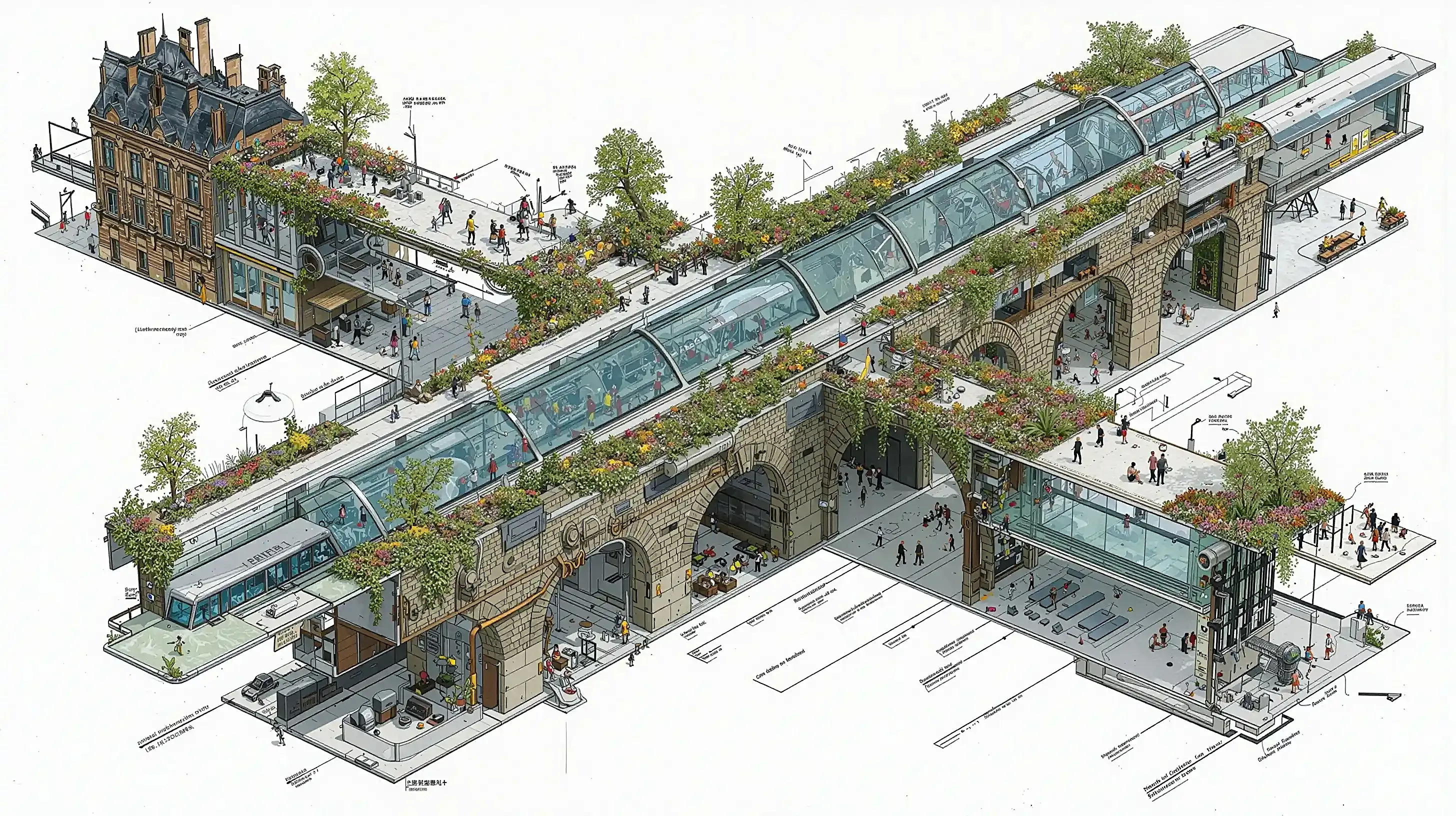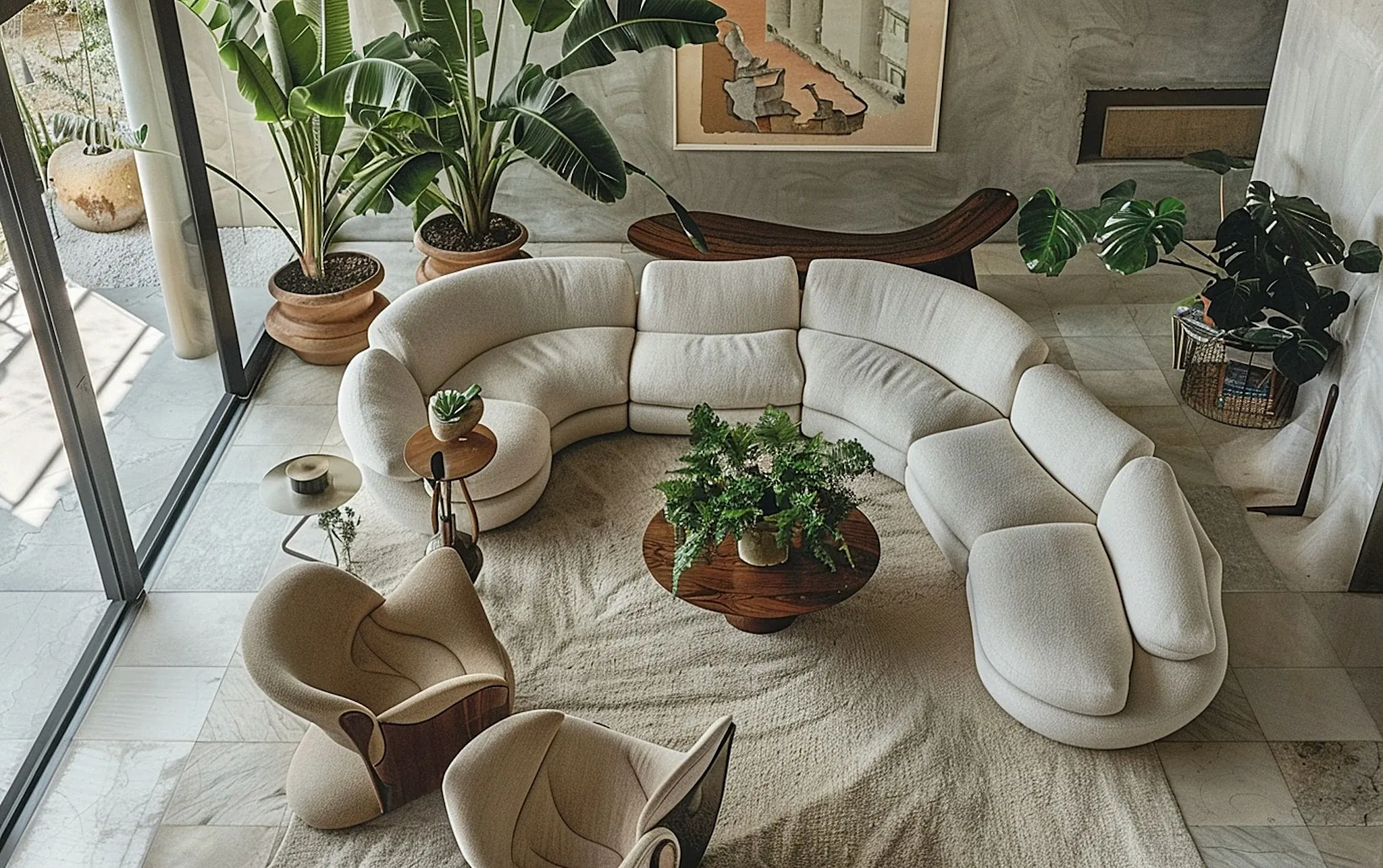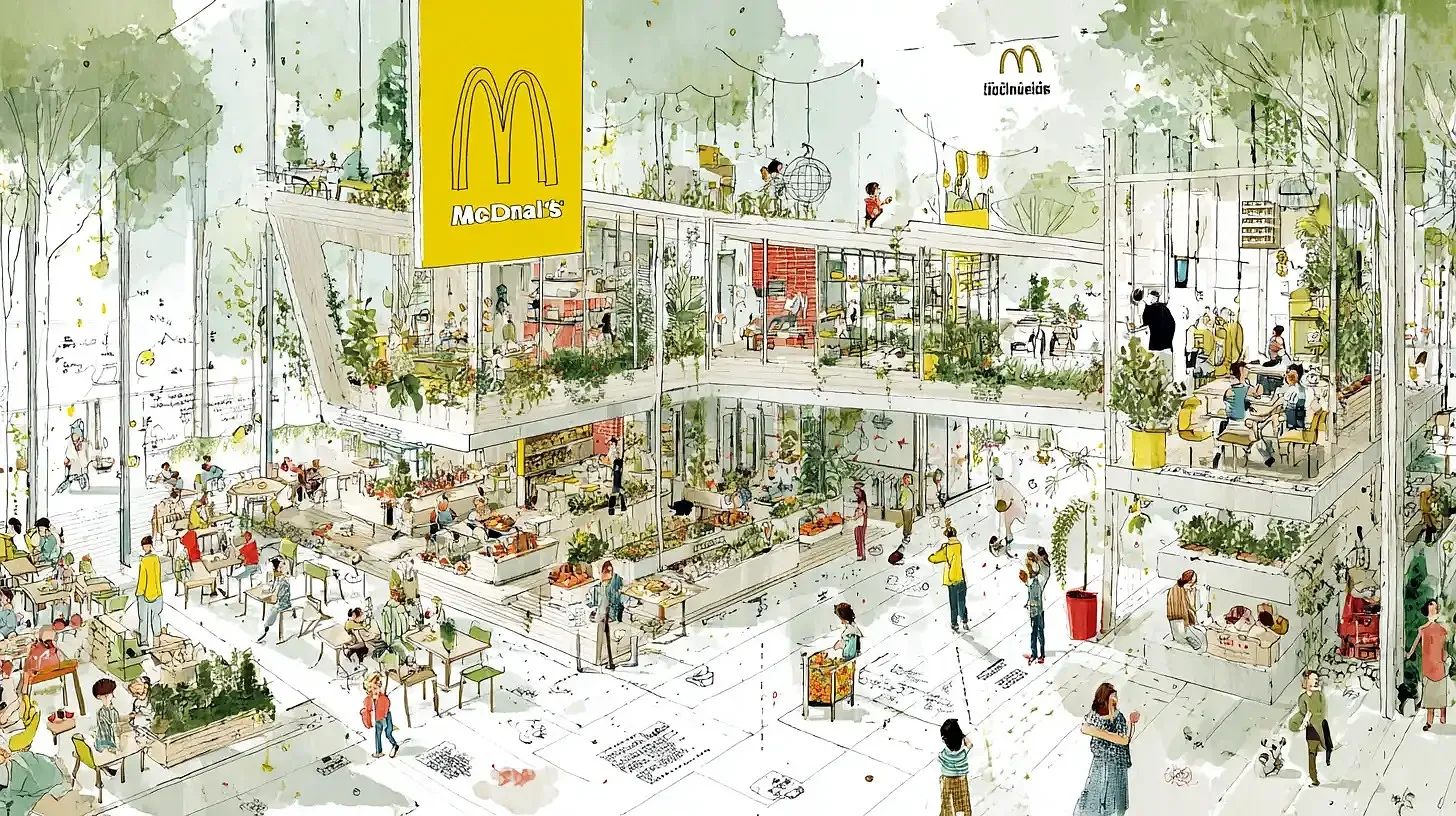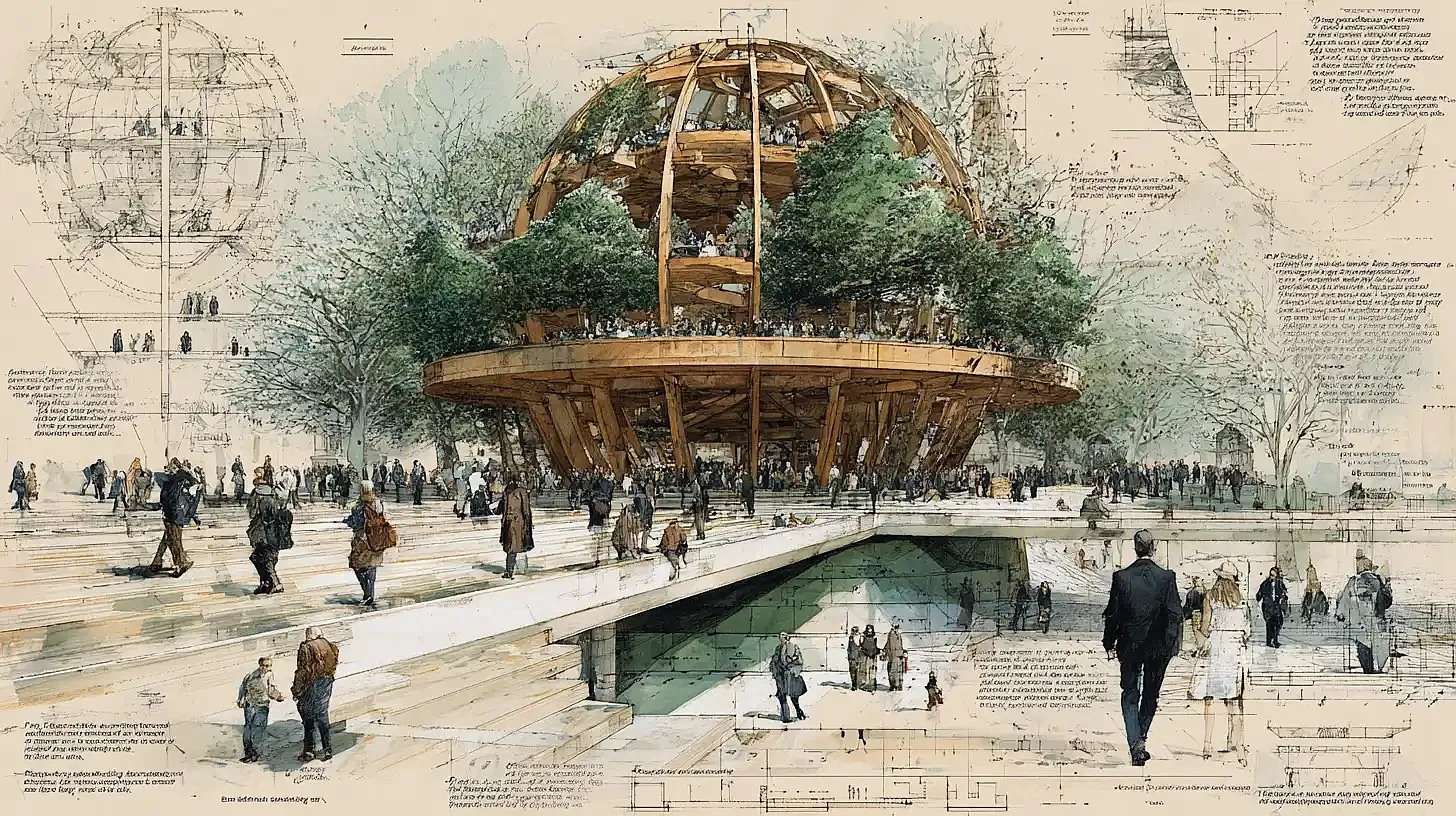.webp)
Costa Rican architect Rolando de la Cruz is known for his proficiency in 3D visualization, stand design, furniture design, POS systems, and architectural design. Rolando graduated with a Licentiate in Architecture from the Universidad de Costa Rica and has a career distinguished by technical accuracy and inventiveness. He is recognized for his impactful commercial and conceptual design projects. To investigate how technology may create new kinds of spatial experience, Rolando is currently expanding his work into AI-driven architecture and Metaverse content creation.
A number of his pieces have been shown at international gatherings such as Meet Utopia in Berlin, Architecture After AI in Texas, and Mobile Detroit 2050. Rolando has a global perspective in his architectural and design work, having worked professionally in the United States, Brazil, India, Turkey, and England.

Rolando de la Cruz is a member of the Federated College of Engineers and Architects of Costa Rica. He has worked with esteemed companies both domestically and abroad during his career, including Gensler, E Studio, Grupo Arquimagenes, and Ovisuals & Imagery.
Some of the most well-known companies in the world, including Apple, Dell Technologies, GBM, Schneider, Procter & Gamble (P&G), Huawei, and Marriott, have hired Rolando as an independent designer to lead their projects. His vast portfolio, which consists of more than 400 projects in the areas of furniture design, POS design, retail design, and exhibition design, demonstrates his capacity to provide creative and impactful solutions.
AIMETA Studio, also known as AIMETAVERSE STUDIO, is a creative hub founded by Rolando, bringing over 20 years of design expertise to the forefront of AI-driven storytelling and architectural visualization.
AIMETA Studio engages in a wide range of creative projects, working with formats such as AI short films for events, corporate presentations, and live performances, as well as teaser campaigns designed to spark curiosity. Its portfolio also includes children’s television programming with complete editing, sound design, and post-production, alongside architectural design content created for digital platforms like Instagram, YouTube, and TikTok. In addition, the team develops still and animated campaigns, using storyboarding, scripting, and cinematic direction to explore new ways of visual storytelling.

Rolando de la Cruz believes that architecture directly shapes the quality of human life, not only in the present but also for future generations. For him, the role of the architect is about creating architectural and urban spaces that unlock human potential and contribute to the well-being of society.
He emphasizes that meaningful design must consider construction and budgets. To deliver truly impactful and sustainable solutions, Rolando integrates historical, cultural, and sociological perspectives into every project. This interdisciplinary approach ensures that his work responds to the unique realities of each context, providing human-centered architecture that endures today and into the future.

Rolando’s approach to architectural storytelling is sketching and AI tools, allowing him to captivate audiences and communicate design intent with originality. This workflow represents his signature process for visual presentation and in architectural content creation.
Rolando begins every project by crafting and iteratively drafting prompts in MidJourney, ensuring he achieves the perfect balance of structure, clarity, and concept. He leverages progressive prompting strategies to unlock a spectrum of visual possibilities, moving from loose conceptual sketches to highly defined representations.
His workflow explores over 10 distinctive sketch styles, ranging from pencil and ink to charcoal and axonometric, tailoring the visual language to suit the project’s narrative and context. Rolando matches each style to the design concept, using manual and automatic prompt generation tools within MidJourney to maximize creativity and efficiency.
Rolando enhances his prompt-crafting process by comparing results from DeepSeek and ChatGPT, extracting unique phrasings and insights that make his architectural sketches look compelling.

Once the sketches are complete, Rolando transitions to animating them using powerful AI platforms such as Kling AI, ArchiVinci, and MidJourney’s video capabilities. He focuses on principles of camera logic and movement, making animations that bring architectural scenes to life for maximum impact during client presentations or competition submissions.
Rolando’s workflow often involves combining Rendair and ArchiVinci, which unlocks advanced animation effects like smooth transitions, layered depth, and fluid camera paths. This enables him to deliver polished, professional-grade animated presentations that stand out in the architectural industry.
The workflow culminates in the export and sharing of concise animated sketch videos, usually 12 seconds in length. They are optimized for clarity and client understanding. Each project benefits from group reviews and expert feedback, ensuring every presentation achieves the highest level of narrative.
Rolando de la Cruz works with technology, incorporating a variety of instruments. While Kling AI makes it possible for dynamic sketch animations that give early concepts life, he employs MidJourney for AI-driven sketch production and style development. He uses ChatGPT and DeepSeek to improve fast craftsmanship for accuracy in concept development. In order to ensure that every project proceeds smoothly from concept to visualization, his approach also includes Rendair for high-fidelity sketch rendering and animation and ArchiVinci for animation flows.

Rolando de la Cruz’s thought leadership has earned him invitations to international conferences and exhibitions. He will also be leading a PAACADEMY workshop titled Dynamic Sketching: AI-Powered Architecture on September 13–14, 2025. The session will explore how AI can expand the possibilities of sketching, visualization, and architectural storytelling.
Through his practice and teaching, Rolando continues to inspire the next generation of architects to embrace technology while staying rooted in cultural and human-centered values, ensuring that architecture remains a discipline that builds spaces and shapes society’s future.
You must be logged in to comment.